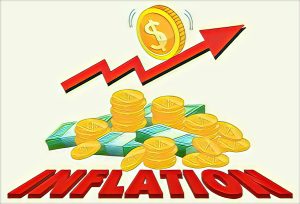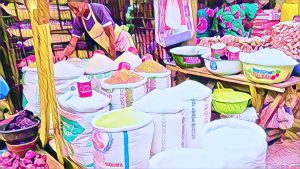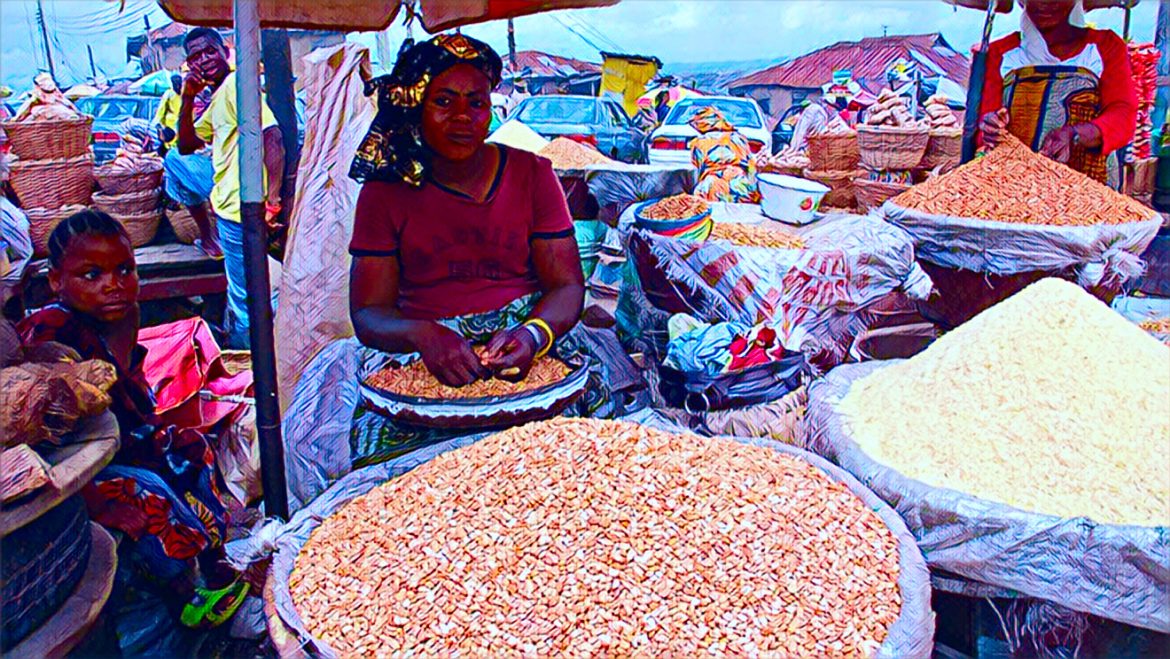KEY POINTS
- Inflation and a weak currency drive food costs.
- Nigerians turn to urban farming and cheaper staples.
- Investments in agriculture are key to food stability.
Nigeria is grappling with a food price crisis that continues to strain households across the country.
With inflation eroding purchasing power and food costs soaring, many Nigerians struggle to afford basic staples.
Food security and affordability are critical to the well-being of millions, yet rising prices disproportionately affect the poorest communities.

Tough times for poor Nigerians as food inflation worsens
While families adopt creative coping mechanisms to navigate this crisis, the root causes remain unaddressed, necessitating urgent systemic changes.
From reducing food consumption to embracing urban agriculture, Nigerians are finding ways to persevere, but sustainable solutions are needed to stabilize the nation’s food economy.
Causes of high food prices in Nigeria
-
Inflation and currency fluctuations
Persistent inflation and the weakening naira are major contributors to high food prices in Nigeria. The nation’s heavy reliance on imports for essential goods means global price shifts directly impact local costs. A weaker currency inflates import costs, making food products less affordable for the average Nigerian. For instance, the price of rice, a staple in Nigerian households, has doubled in recent years.

Fuel Hikes, Naira Depreciation Could Raise Inflation—Analysts
Inflation, currently hovering at multi-decade highs, further exacerbates the crisis by reducing consumers’ purchasing power, creating a cycle of economic distress that makes basic sustenance a luxury for many.
-
Food production and supply chain challenges

Farmers in states like Kaduna and Zamfara face constant threats from banditry, making it difficult to grow and transport food to markets.
Nigeria’s food production is hampered by a myriad of challenges, including insecurity in key agricultural regions, erratic weather patterns linked to climate change, and insufficient infrastructure. Farmers in states like Kaduna and Zamfara face constant threats from banditry, making it difficult to grow and transport food to markets.
Poor road networks and inadequate storage facilities lead to significant post-harvest losses, with an estimated 30 percent of food produced going to waste. These obstacles disrupt supply chains and contribute to price hikes, leaving consumers to bear the brunt of inefficiencies.
-
Trade policies and import dependence
Nigeria’s dependence on food imports amplifies its vulnerability to global market shifts and trade policy challenges. Import bans and tariffs, while intended to boost local production, often lead to short-term supply shortages, driving up prices. Additionally, the country’s inability to achieve self-sufficiency in key crops like wheat and sugar keeps it tethered to volatile global markets.

Combined with inconsistent government policies, these factors create an unstable food economy, disproportionately impacting low-income households who already spend a large portion of their income on food.
Combined with inconsistent government policies, these factors create an unstable food economy, disproportionately impacting low-income households who already spend a large portion of their income on food.
Coping mechanisms
-
Reducing food consumption
Faced with surging prices, many Nigerians are cutting back on food consumption, prioritizing smaller portions and less frequent meals. Families in urban centers like Lagos and Abuja often opt for one or two meals a day, sacrificing dietary diversity for affordability. This approach, while necessary, risks long-term health consequences, particularly for children, who require balanced diets for growth and development. For low-income households, the trade-off between eating less and managing other expenses like rent and school fees is becoming an increasingly painful reality.
-
Switching to cheaper alternatives
Another common strategy is substituting expensive staples with more affordable options. Cassava-based meals, such as garri and fufu, have become more prevalent as alternatives to rice and wheat-based products. Similarly, plantains and yams are gaining popularity in regions where they are locally available. While these substitutions help families stretch their budgets, they often lack the nutritional balance provided by more diverse diets. Nonetheless, the shift underscores Nigerians’ resilience and adaptability in the face of rising costs.
-
Increasing food production
Some Nigerians are turning to urban agriculture and backyard farming to supplement their food supply. From growing vegetables on balconies to raising poultry in backyards, these practices are gaining traction in both urban and rural areas. For instance, a Kano-based farmer has successfully doubled his yield using irrigation and organic fertilizers. While this approach fosters self-reliance and reduces dependence on markets, it is not a feasible solution for everyone, particularly in densely populated urban areas with limited space.
-
Seeking assistance from Government and NGOs
Government initiatives and NGO programs play a crucial role in helping vulnerable populations access affordable food. Subsidized grain programs, food banks, and cash transfers are some of the measures in place to alleviate the crisis. However, many Nigerians feel these efforts fall short due to limited reach and inconsistent implementation. NGOs like Action Against Hunger are stepping in to fill the gaps, distributing food packages and educating communities on sustainable farming practices. Despite these efforts, more comprehensive policies are needed to ensure equitable access to affordable food.
Scenarios
- A Lagos family’s struggle: A middle-income family in Lagos has reduced meals from three to two daily, focusing on cost-effective options like garri.
- A Farmer’s innovation in Kano: A farmer has increased his yield through irrigation techniques, balancing the high costs of inputs with improved profitability.
- A Trader’s dilemma in Port Harcourt: A market woman faces dwindling profits as high transportation costs eat into earnings, despite increasing food prices.
Opportunities and future directions
- Agricultural development and investment: Boosting investment in agriculture can improve productivity and reduce reliance on imports, stabilizing food prices.
- Food processing and preservation: Addressing post-harvest losses through modern storage and processing methods can enhance food availability and affordability.
- Urban Agriculture: Expanding urban farming initiatives can mitigate supply chain issues and empower communities to grow their food.
- Government support: Comprehensive subsidies and targeted interventions can protect vulnerable populations and encourage sustainable farming practices.
Challenges
- Funding and investment constraints: Limited access to financing stifles growth in agriculture and food systems.
- Infrastructure deficits: Poor road networks and storage facilities hinder the efficient distribution of food.
- Climate change: Unpredictable weather patterns threaten agricultural yields, necessitating adaptive farming practices.
- Insecurity: Addressing conflict in agricultural regions is essential to stabilize food production and distribution.
Nigeria’s food price crisis underscores the need for systemic solutions to ensure food security and affordability. While families demonstrate remarkable resilience, reducing consumption and embracing backyard farming are stop-gap measures.
Addressing root causes like agricultural inefficiencies, infrastructure deficits, and insecurity is crucial to stabilizing the food economy.
With strategic investments, innovative practices, and strengthened government support, Nigeria can chart a path toward sustainable food security, fostering resilience and growth for millions of households.


